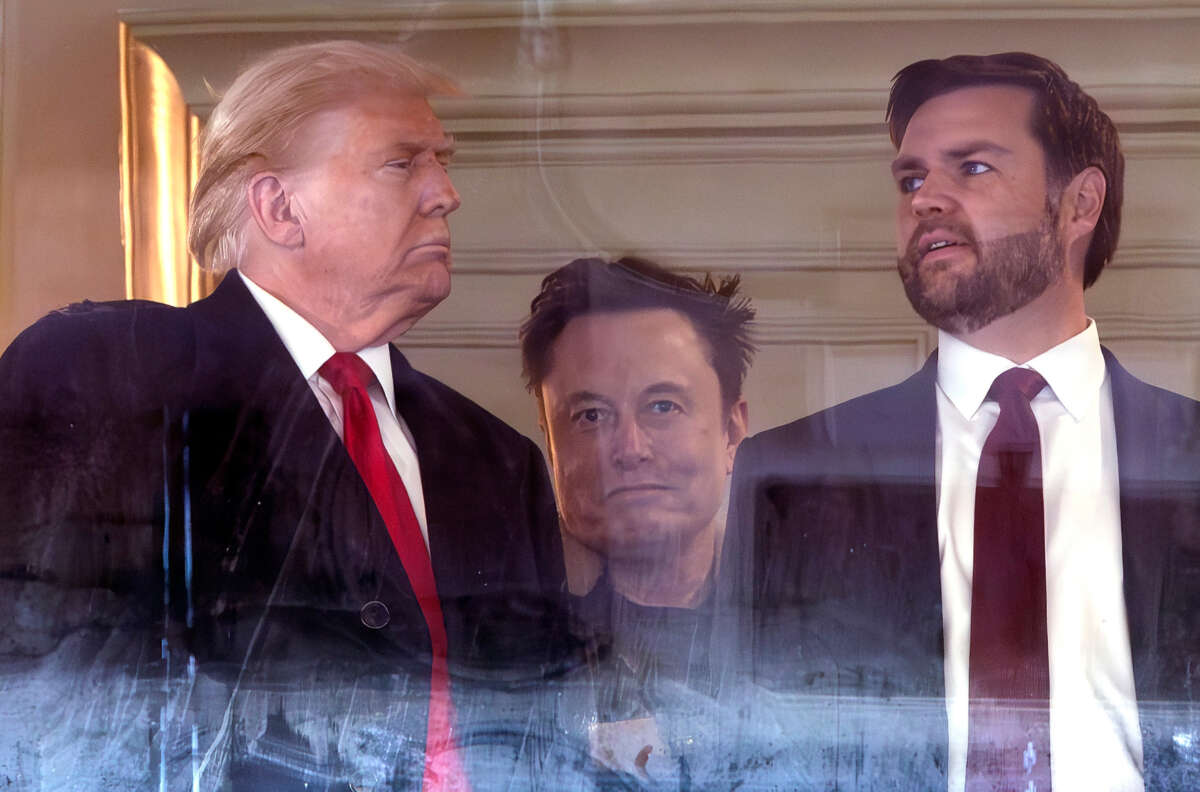President-elect Donald Trump’s transition team is looking at ways to either reform, reorganize or completely eliminate the Federal Deposit Insurance Corporation (FDIC), a federal agency that provides insurance for banks to ensure that customers’ money can be recovered in the case of a bank closure.
Any changes to the FDIC, an independent agency created in the Great Depression era that insures banking customers’ deposits, would be controversial, to say the least.
Citing sources familiar with these discussions, The Wall Street Journal reported last week that individuals seeking to be part of the incoming administration are being asked by the Trump transition team and members of the Department of Government Efficiency (DOGE) task force if they believe the FDIC can be changed in some manner.
Individuals under consideration for roles within the agency itself, as well as in the Office of the Comptroller of the Currency, are also being asked “if deposit insurance could be absorbed into the Treasury Department” after eliminating the agency, the report noted.
While these questions are being asked of potential executive branch members, any changes to the FDIC would need to be made by a legislative act in Congress.
It’s unclear why the Trump team would want to dismantle or change the FDIC in any way. It’s possible these questions are being asked because of Elon Musk’s support for cryptocurrency, which the FDIC has warned in the past can be risky for banks to work with.
Any of the changes to the agency that are being discussed could have a detrimental effect on customers’ confidence in the banking system.
The FDIC insures customers’ accounts up to $250,000 in their deposits. The agency is a self-sustaining entity, operating on funds derived from insurance premiums from deposits held by banks involved in the program.
Before the agency’s creation, customer accounts at banks were at risk of being wiped out completely when a bank failed, which happened frequently during nationwide bank runs in the early 1930s. After imposing a weeklong national “bank holiday” in response to the crisis in 1933, President Franklin Roosevelt and Congress passed the Emergency Banking Act, which established new rules for banks to reopen and enacted greater regulations on them afterward. In June of that same year, another law was passed establishing the FDIC.
After The Wall Street Journal report was published, several commentators on social media expressed their concern and incredulity that the Trump transition team was considering ending the agency.
“Make no mistake: The goal of Trump’s second term is to enrich Wall Street. Everyone else will be left behind,” former Labor Secretary Robert Reich wrote in response.
“FDR created the FDIC amid The Great Depression in order to restore faith in American banking. People were basically losing everything when their banks failed,” journalist Walker Bragman noted in a Bluesky thread. “If he’s successful in doing what he wants to do — or what his team wants to do — Trump is going to create the conditions for another depression.”
Former FDIC chair Sheila Bair, who has also worked in the Treasury Department, provided a unique perspective of both institutions in posts on X.
“Eliminating the FDIC is so out there, not sure it needs response,” Bair wrote, adding:
[The Treasury Department] would not be a good home for deposit insurance. Deposit insurance is funded by bank premiums, not taxpayers. Treasury has no expertise in handling bank failures.
Angry, shocked, overwhelmed? Take action: Support independent media.
We’ve borne witness to a chaotic first few months in Trump’s presidency.
Over the last months, each executive order has delivered shock and bewilderment — a core part of a strategy to make the right-wing turn feel inevitable and overwhelming. But, as organizer Sandra Avalos implored us to remember in Truthout last November, “Together, we are more powerful than Trump.”
Indeed, the Trump administration is pushing through executive orders, but — as we’ve reported at Truthout — many are in legal limbo and face court challenges from unions and civil rights groups. Efforts to quash anti-racist teaching and DEI programs are stalled by education faculty, staff, and students refusing to comply. And communities across the country are coming together to raise the alarm on ICE raids, inform neighbors of their civil rights, and protect each other in moving shows of solidarity.
It will be a long fight ahead. And as nonprofit movement media, Truthout plans to be there documenting and uplifting resistance.
As we undertake this life-sustaining work, we appeal for your support. We have 2 days left in our fundraiser: Please, if you find value in what we do, join our community of sustainers by making a monthly or one-time gift.
